Download TransDiscal DFU
Transcript
TransDiscal * Cooled Radiofrequency Kit Pain Management Instructions for Use 1 Sterile water injection port Luer Locks - for connection of Tube Kit to TransDiscal* Probe 70 ml Mark Pump Connector Cable Burette Reservoir Cooled Radiofrequency Sterile Tube Kit Fig. 1 Generator Pump Unit TransDiscal* Probe Tube Kit TransDiscal* Introducer TransDiscal* Y-Connector Cable TransDiscal* Introducer Tube Kit TransDiscal* Probe System Schematic Fig. 2 Inject sterile water into burette 70 mL Mark 70 mL Mark Fig. 3 Burette Placement in Pump Unit Remove lid and pour sterile water Fig. 4 Fig. 5 Placement of Tubing in the Pump Unit Fig. 7 Fig. 6 Single Use Only STERILE EO Attention: See Instructions for Use 2 Connection of Luer Locks Rx Only Keep Away from Sunlight Do Not Use If Package Is Damaged Dispose of Properly e Kimberly-Clark* TransDiscal* Cooled Radiofrequency Kit Pain Management Federal (U.S.A.) law restricts this device to sale by or on the order of a physician. Device Description Kimberly-Clark* TransDiscal* Cooled Radiofrequency Introducer (sterile, single use): It is to be used with the Kimberly-Clark* TransDiscal* Cooled Radiofrequency Probes only. The TransDiscal* Introducer provides a path for the TransDiscal* Probe to the disc. Kimberly-Clark* TransDiscal* Cooled Radiofrequency Probe (sterile, single use): It is inserted through a TransDiscal* Introducer into the intervertebral disc. Sterile water circulates internally to cool the TransDiscal* Probe while it delivers radiofrequency (RF) energy. Thermocouples in the TransDiscal* Probe measure cooled electrode temperature throughout the procedure. Kimberly-Clark* Cooled Radiofrequency Sterile Tube Kit (sterile, single use, non-body contact): It is used for closed-loop circulation of sterile water through a TransDiscal* Probe. It includes a burette and tubing. Indications For Use The Kimberly-Clark* TransDiscal* Cooled Radiofrequency Kit, in combination with the Kimberly-Clark* Radiofrequency Generator (PMG-115-TD/PMG-230-TD) (formerly Baylis Pain Management Generator), is indicated for the coagulation and decompression of disc material to treat symptomatic patients with contained herniated discs. Contraindications For patients with cardiac pacemakers, a variety of changes can occur during and after the treatment. In sensing mode the pacemaker may interpret the RF signal as a heartbeat and may fail to pace the heart. Contact the pacemaker company to determine if the pacemaker should be converted to a fixed-rate pacing during the radiofrequency procedure. Evaluate the patient’s pacing system after the procedure. Check the compatibility and safety of combinations of other physiological monitoring and electrical apparatus to be used on the patient in addition to the RF Generator. If the patient has a spinal cord, deep brain, or other stimulator, contact the manufacturer to determine if the stimulator needs to be in the bipolar stimulation mode or in the OFF position. This procedure should be reconsidered in patients with any prior neurological deficit. The use of general anesthesia is contraindicated. To allow for patient feedback and response during the procedure, it should be performed under local anesthesia. Systemic infection or local infection in area of the procedure. Blood coagulation disorders or anticoagulant use. Warnings The TransDiscal* Kit contains single-use devices. Do not reuse, reprocess, or resterilize this medical device. Reuse, reprocessing, or resterilization may 1) adversely affect the known biocompatibility of the device, 2) compromise the structural integrity of the device, 3) lead to the device not performing as intended, or 4) create a risk of contamination and cause the transmission of infectious diseases resulting in a patient injury, illness, or death. The TransDiscal* Probe must be used with the correct connector cable. Attempts to use it with other connector cables can result in electrocution of the patient or operator. Laboratory staff and patients can undergo significant x-ray exposure during radiofrequency procedures due to the continuous use of fluoroscopic imaging. This exposure can result in acute radiation injury as well as increased risk for somatic and genetic effects Therefore; adequate measures must be taken to minimize this exposure. Discontinue use if inaccurate, erratic or sluggish temperature readings are observed. Use of damaged equipment may cause patient injury. Do not modify Kimberly-Clark* Equipment. Any modifications may compromise safety and efficacy of the device. When the RF Generator is activated, the conducted and radiated electrical fields may interfere with other electrical medical equipment. The RF Generator is capable of delivering significant electrical power. Patient or operator injury can result from improper handling of the TransDiscal* Probes, particularly when operating the device. During power delivery, the patient should not be allowed to come in contact with grounded metal surfaces. Do not remove or withdraw the device while energy is being delivered. Precautions Do not attempt to use the TransDiscal* Kit before thoroughly reading the accompanying Instructions for Use and the User’s Manual for the RF Generator. Apparent low power output or failure of the equipment to function properly at normal settings may indicate: 1) faulty application of the dispersive electrode or 2) power failure to an electrical lead. Do not increase power level before checking for obvious defects or misapplication. To prevent the risk of ignition, make sure that flammable material is not present in the room during RF power application. Only physicians familiar with RF lesion techniques should use the TransDiscal* Kit components. It is the physician’s responsibility to determine, assess and communicate to each individual patient all foreseeable risks of the RF lesion procedure. The sterile packaging should be visually inspected prior to use to detect any compromise. Ensure that the packaging has not been damaged. Do not use the equipment if the packaging has been compromised. Proper sterile techniques must be used when assembling and filling the Tube Kit. Do not place the lid down on a non-sterile surface. Kimberly-Clark* Cooled Radiofrequency Sterile Tube Kit The Tube Kit is for use with a single TransDiscal* Probe. Care must be taken to ensure all luer fittings are secure to prevent leaking. Do not disconnect luer fittings while the pump is running. Arrange equipment to minimize tubing tripping hazards. Do NOT perform cooled RF lesion procedures if water is not circulating through the Tube Kit, water is leaking or air bubbles are seen in the tubing. Immediately stop the procedure and correct circulation before restarting the procedure. Do NOT pinch the tubing of the Tube Kit. Kimberly-Clark* TransDiscal* Cooled Radiofrequency Introducer Be careful while handling the TransDiscal* Introducer. The sharp tip can cause injury to the operator if handled carelessly. Handle the Introducer safely when it is in use due to electric currents. Do not remove or withdraw the Introducer while energy is being delivered. Do not move the Introducer without the stylet fully inserted. Kimberly-Clark* TransDiscal* Cooled Radiofrequency Probe The Tube Kit should never be disconnected from the TransDiscal* Probe when RF delivery is in progress. The lumen of the Tube Kit should not be obstructed in any way during the procedure, as this will stop cooling of the TransDiscal* Probe. Disconnect the TransDiscal* Probe by pulling the connector, not the cable. Handle the TransDiscal* Probe safely when it is in use due to electric currents and the hot tip. While inserting the TransDiscal* Probe through the TransDiscal* Introducer watch the fluoroscope for any buckling. Do not attempt to further insert the TransDiscal* Probe if any buckling is observed or significant resistance is felt. Confirm the placement of the TransDiscal* Probe in the disc with fluoroscopy. Do not apply RF energy if any segment of the TransDiscal* Probe distal to the Introducer is outside the intervertebral disc wall. Do not move the TransDiscal* Introducer when the TransDiscal* Probe is in it. If repositioning is needed, retract the TransDiscal* Probe from the Introducer and then reposition the Introducer with the stylet inserted. The “TransDiscal* Temp” displayed on the RF Generator refers to the cooled electrode temperature and not the hottest tissue temperature. The “Peripheral Disc Temp” displayed on the RF Generator refers to the temperature of the TransDiscal* Probe shaft 3 mm proximal from the electrode and is cooled slightly. This value is not to be used to assess the hottest tissue in the disc periphery. Adverse Events Potential complications associated with the use of this device include but are not limited to: infection, nerve damage, increased pain, visceral injury, failure of technique, paralysis, and death. 3 Product Specifications The TransDiscal* Probe is comprised of an electrically insulated shaft with a active tip that functions as an electrode for RF energy delivery, a handle, tubes with luer locks and a cable with a 5-pin connector. The TransDiscal* Introducer includes an insulated stainless steel cannula and a stylet. The Tube Kit is comprised of a burette and flexible tubing fitted with luer locks for connection to the TransDiscal* Probe. The kit components are ethylene oxide sterilized and supplied sterile. The devices should be stored in a cool, dry environment. Note: Please contact Kimberly-Clark for a list of all model numbers and sizes. Inspection Prior To Use The sterile packaging should be visually inspected prior to use to detect any compromise. Ensure that the packaging has not been damaged. Do not use the equipment if the packaging has been compromised. Equipment Required Procedures in the disc should be performed in a specialized clinical setting equipped with a fluoroscopy unit. The equipment required to perform RF procedures include: • TransDiscal* Cooled Radiofrequency Probe(s) • TransDiscal* Cooled Radiofrequency Introducer(s) • Cooled Radiofrequency Peristaltic Pump Unit and Cable • Cooled Radiofrequency Sterile Tube Kit(s) • TransDiscal* Cooled Radiofrequency Y-Connector Cable • Dispersive Electrode • Radiofrequency Generator (PMG-115-TD/PMG-230-TD) Troubleshooting Instructions For Use (Fig. 2) The following table is provided to assist the user in diagnosing potential problems. Figure 2 is a schematic representation of the connections of the system. Assemble all the equipment required for the procedure. Set up the Radiofrequency Generator (PMG-115-TD/PMG-230-TD) and the Pump Unit as directed in their Instructions for Use. Connect the TransDiscal* Y-Connector Cable to the RF Generator as described in its Instructions for Use. Open the package in the sterile field using appropriate sterile techniques. Inspect the devices visually to make sure there is no damage to them. Do NOT perform the procedure with any damaged equipment. Kimberly-Clark* TransDiscal* Cooled Radiofrequency Introducer 1. Carefully insert the Introducer with the stylet in it, into the intervertebral disc under fluoroscopic guidance. 2. Once the Introducer is in the proper position, carefully remove the stylet from the Introducer. 3. Repeat steps 1-2 with a second Introducer. 4 Kimberly-Clark* TransDiscal* Cooled Radiofrequency Probe 1. Insert the TransDiscal* Probes in the intervertebral disc through the Introducers. Never force the TransDiscal* Probe in if significant resistance is felt. 2. Connect the TransDiscal* Probe to the Tube Kit. 3. Connect the TransDiscal* Probes to the TransDiscal* Y-Connector Cable. If the option of one TransDiscal* Probe has been enabled in the RF Generator, connect the TransDiscal* Probe to “TransDiscal* Probe A” side of the TransDiscal* Y-Connector Cable. 4. Select the Treatment Mode in the RF Generator. Set advanced settings and the parameters for RF delivery in the RF Generator as described in its User’s Manual. 5. Perform the procedure as described in the RF Generator User’s Manual. The procedure comprises pre-cooling, treatment and post-cooling stages. 6. Temperatures at the tip of the electrode and 3 mm proximal to the electrode of the TransDiscal* Probe are monitored throughout the procedure by the RF Generator. Note: Other than reproduction of their usual back pain or irritation due to TransDiscal* Probe introduction, monitor the patient for unexpected symptoms that may indicate, for example, spinal cord or nerve root irritation. If these indications are suspected discontinue energy delivery. 7. After post-cooling remove the TransDiscal* Probes and the Introducer and discard as biohazards. If used, remove the Dispersive Electrode from the patient and discard appropriately. Disconnect the TransDiscal* Y-Connector Cable from the RF Generator. Follow standard hospital techniques to handle reusable items. Kimberly-Clark* Cooled Radiofrequency Sterile Tube Kit (Fig. 1) 1. Place the burette into the burette holder on the side of the Pump Unit. The side of the burette with 2 or 3 ports indicates the top of the burette. (Fig. 3) 2. Fill the burette with room temperature sterile water. Use sterile handling techniques. Fill the burette to the 70 mL mark. Burette can be filled by injecting sterile water through a port in the lid, or by temporarily removing the lid and pouring sterile water in. Warning: BE SURE TO FILL THE BURETTE TO THE 70 mL MARK. Not filling the burette to the 70 mL mark will result in an inadequate supply of water for circulation. Use ONLY sterile room temperature water. After filling, ensure the lid is snapped back onto the body of the burette it was removed from. It is important that the lid corresponds to the original burette body it was removed from; do not mix up the lids. Inject sterile water into burette (Fig. 4) OR remove lid and pour sterile water. (Fig. 5) 3. Place the thick-walled tubing coming out of the bottom of the burette into the pumphead of the Pump Unit (Fig. 6). Place the tubing in the channels of the L-shaped bracket to ensure that the tubing is not obstructed while closing the pumphead. Close the lid on the pumphead to clamp down on the tubing. 4. Remove the caps on the male and female luer locks. Connect the appropriate luer lock to the corresponding luer lock on the TransDiscal* Probe (Fig. 7). Do not over tighten the connection. Caution: Connect one Tube Kit to one TransDiscal* Probe. 5. At the end of the procedure, discard the Tube Kit appropriately. PROBLEM TROUBLESHOOTING No temperature measurement in treatment mode OR Inaccurate, erratic or sluggish temperature reading in treatment mode Ensure that all connections are made: • Probe(s) to Y-Connector Cable • Y-Connector Cable to the RF Generator • RF Generator to power outlet Check for an error message on the RF Generator. Visually inspect the Probe or Cable for damage. Ensure that devices are dry and at room temperature. If problem persists discontinue use. Water does not flow through TransDiscal* Probe and Tube Kit. • Stop the procedure immediately. • Check the luer lock connections to ensure the Tube Kit is connected to the TransDiscal* Probe. • Check the Pump to ensure the lid is not open. • Check RF Generator for any error messages. Probe connector does not fit in Probe plug-in. • Check that the connector’s keys are lined up in the proper orientation. • Ensure that the connectors are clean and unobstructed. Damage to insulation on TransDiscal* Probe or Introducer. Do not use. Discard immediately. PROBLEM TROUBLESHOOTING Water is not circulating through tubing during TransDiscal* pre-cooling, ON and post-cooling states. • Ensure the Tube Kit is correctly connected to the Probe. • Ensure the Tube Kit has been placed in the pumphead and that it is correctly located in the L-shaped tube guides. • Ensure the burette reservoir has been filled. • Visually inspect the Tube Kit tubing and joints for leaks and occlusions. • Ensure that the float ball in the burette is floating and not occluding the outflow of water from the burette. • Ensure the pump tubing (thick-walled tubing that is coming directly out of the bottom port of the burette) is placed in the pumphead. Water is not dripping into the burette. Check to see if water is running down the wall of the burette. Tubing cannot be placed in the pump. Open the pumphead lid fully and place the tubing above the L-shaped guides. Float is stuck on bottom port of the burette. Close the pumphead lid. Gently shake the burette to try and loosen the ball from the bottom of the burette. Tube Kit cannot be connected to Probe. Check to see that male and female luer locks are properly connected. Tube Kit breaks, is leaking or is occluded. Immediately discard the Tube Kit. Disclaimer and Exclusion of Other Warranties There are no warranties of any kind, which extend beyond the description of the warranties above. Kimberly-Clark disclaims and excludes all warranties, whether expressed or implied, of merchantability or fitness for a particular use of purpose. Limitation of Liability for Damages In any claim or lawsuit for damages arising from alleged breach of warranty, breach of contract, negligence, product liability or any other legal or equitable theory, the buyer specifically agrees that Kimberly-Clark shall not be liable for damages for loss of profits or claims of buyer’s customers for any such damages. Kimberly-Clark’s sole liability for damages shall be limited to the cost to buyer of the specified goods sold by Kimberly-Clark to buyer which give rise to the claim for liability. The buyer’s use of this product shall be deemed acceptance of the terms and conditions of these limited warranties, exclusions, disclaimers and limitations of liability for money damages. Customer Service and Product Return Information If you have any problems with or questions about this Kimberly-Clark* Equipment, contact our technical support personnel: Kimberly-Clark 1400 Holcomb Bridge Rd. Roswell, GA 30076-2199 E-mail: [email protected] U.S. Customers: 800-KCHELPS (800-742-1996) International Customers: +1-770-587-7200 Notes In order to return products under limited warranty you must have a return authorization number before shipping the products back to Kimberly-Clark. Limited Warranties Kimberly-Clark warrants that these products are free from defects in original workmanship and materials. If these products prove to be defective in original workmanship or original materials, Kimberly-Clark, in its absolute and sole discretion, will replace or repair any such product, less charges for transportation and labor costs incidental to inspection, removal or restocking of product. This limited warranty applies only to original factory delivered products that have been used for their normal and intended uses. Kimberly-Clark’s limited warranty shall NOT apply to Kimberly-Clark’s products which have been repaired, altered or modified in any way and shall NOT apply to Kimberly-Clark’s products which have been improperly stored or improperly installed, operated or maintained contrary to Kimberly-Clark’s Instructions. The warranty period for Kimberly-Clark* RF Probes and RF Generator Connector Cables is 90 days from the date of purchase, unless otherwise stated. 5









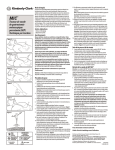
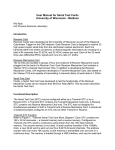


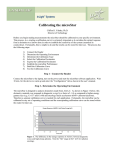

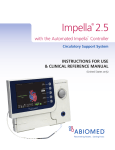
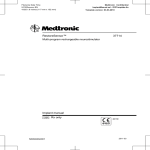
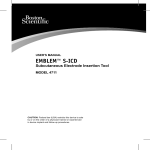


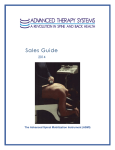
![en:users:manual:0.4.3b:index [Pencil Wiki ]](http://vs1.manualzilla.com/store/data/005878085_1-1fc748767abf1b25ff52dda6bda51fd8-150x150.png)
